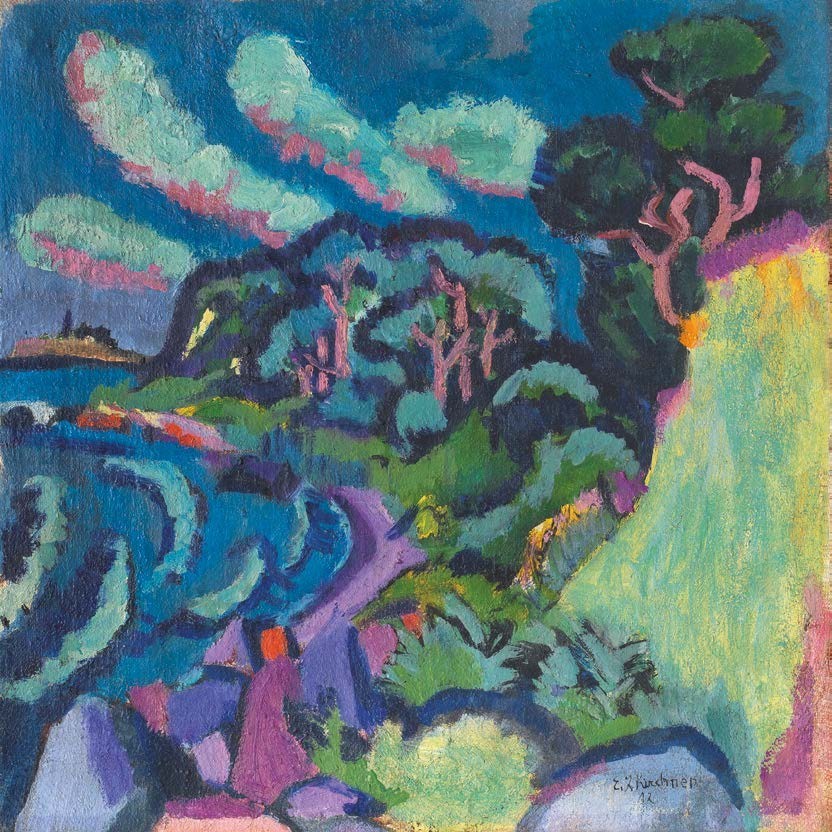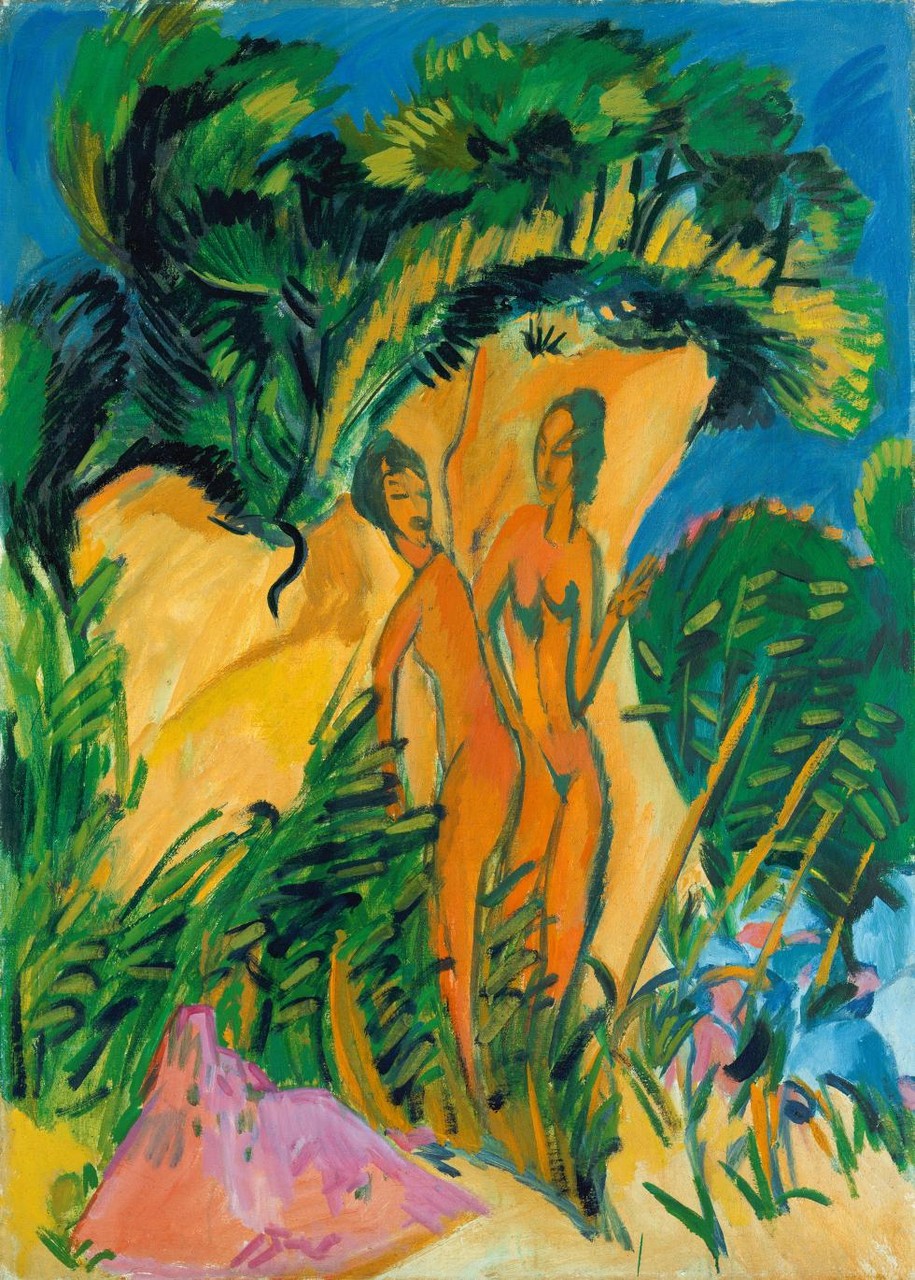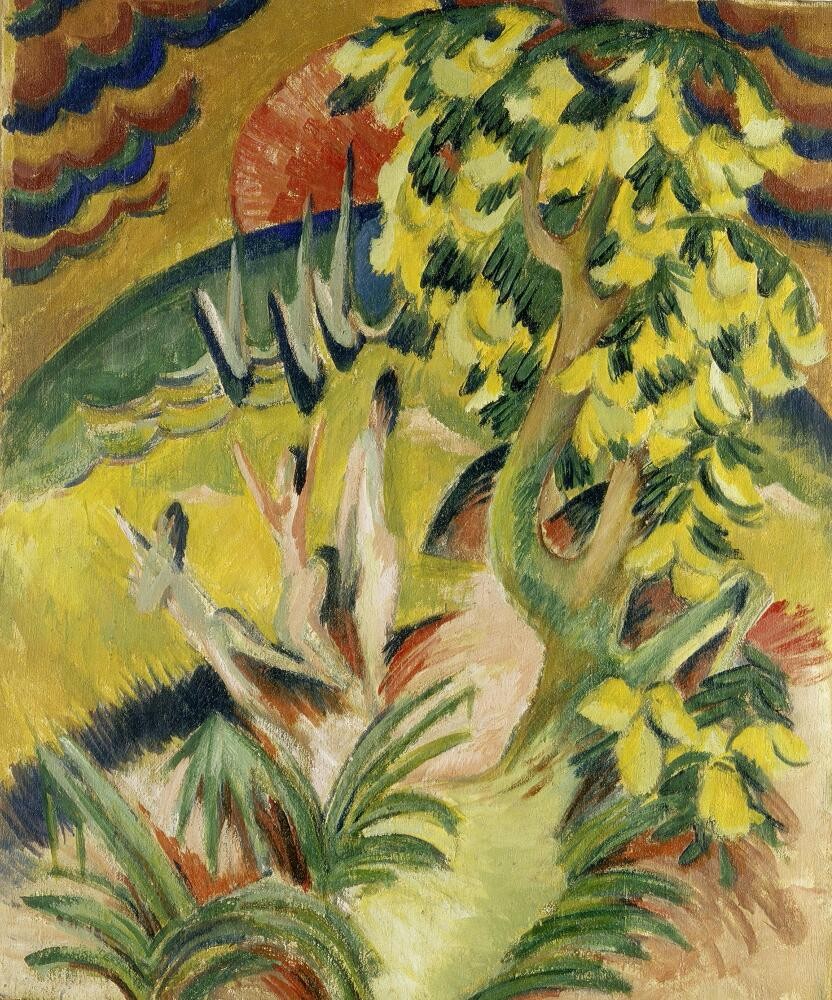Vibrant Metropolis / Idyllic Nature
Kirchner – The Berlin Years
10 Feb - 21 May 2017
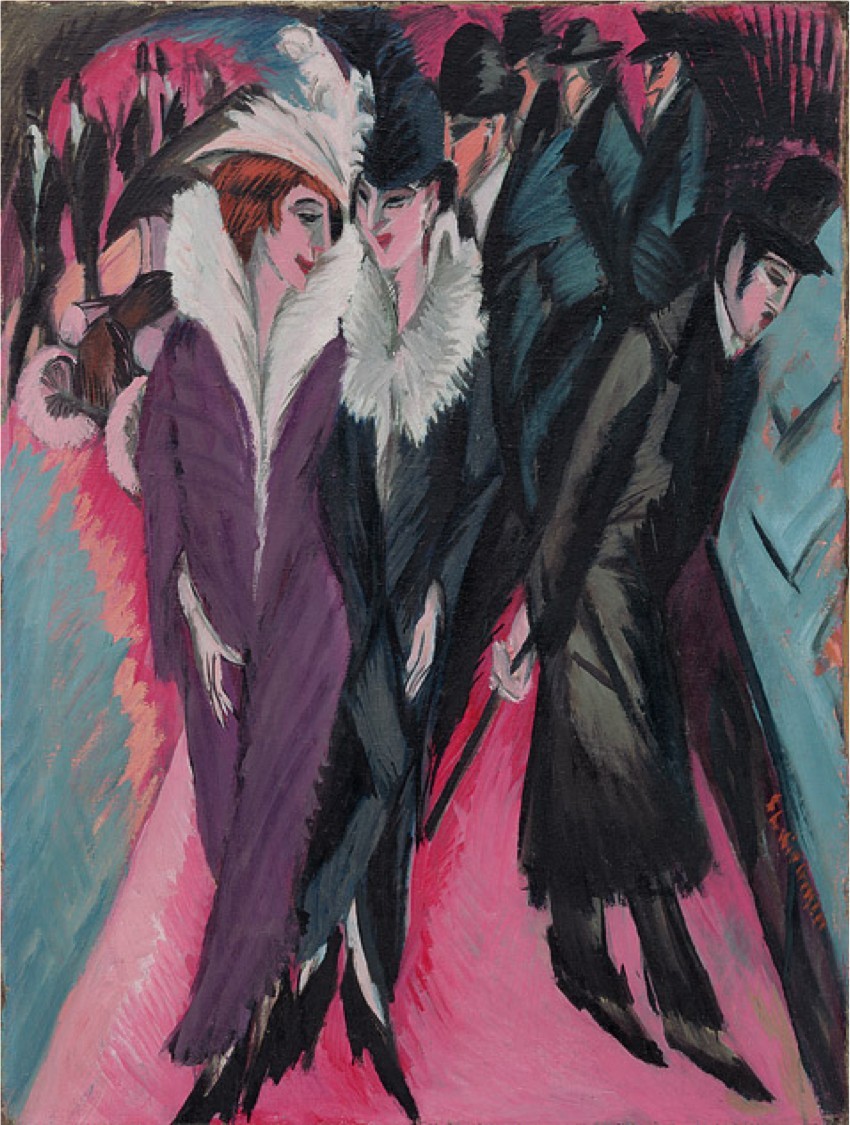
Street, Berlin, 1913
Oil on canvas
120.5 x 91 cm
The Museum of Modern Art, New York, purchase, 1939, © 2017. Digital image, The Museum of Modern Art, New York/Scala, Florence
Oil on canvas
120.5 x 91 cm
The Museum of Modern Art, New York, purchase, 1939, © 2017. Digital image, The Museum of Modern Art, New York/Scala, Florence
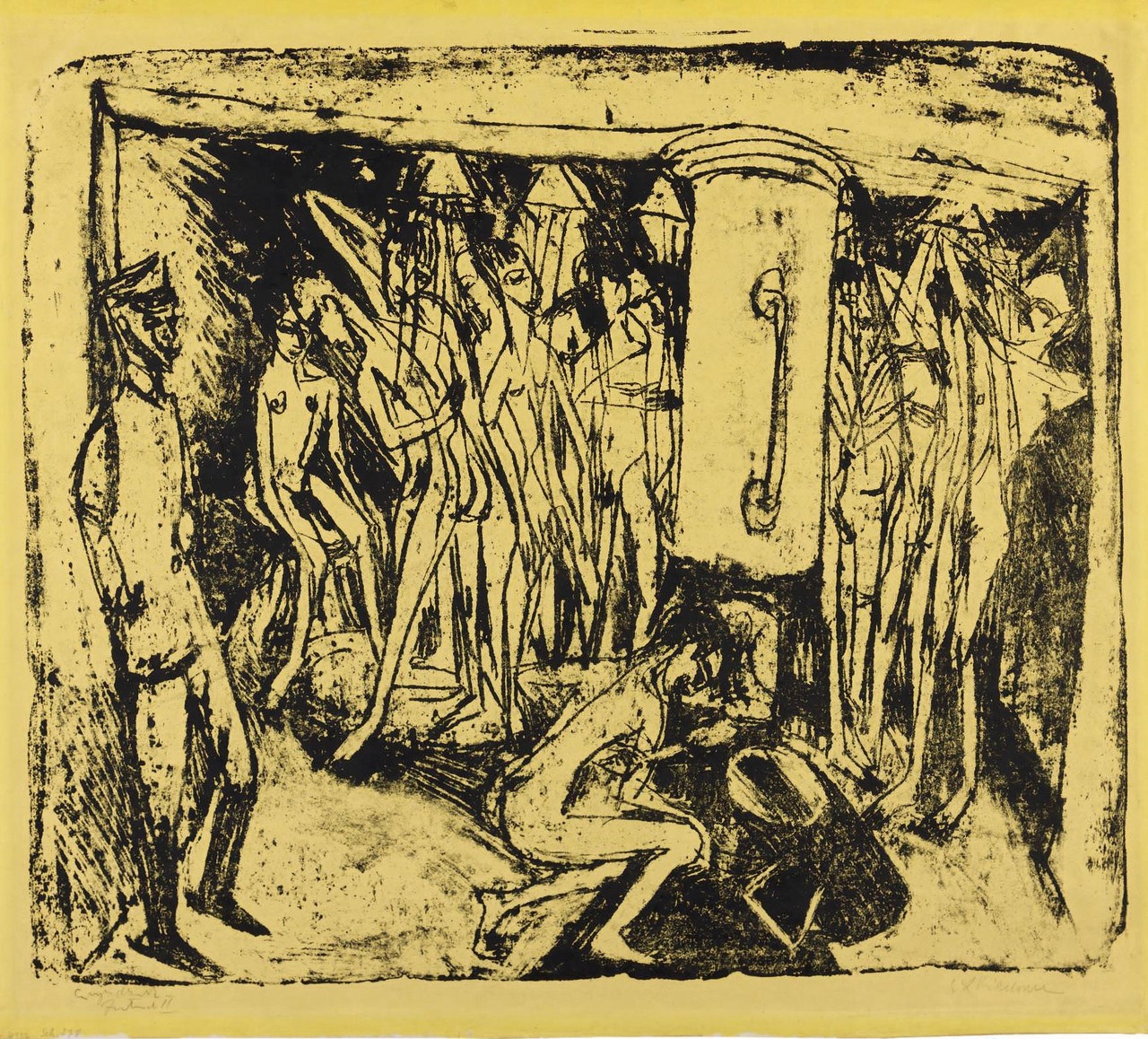
Artillerists’ Bath – Bathing Soldiers, 1915
Lithograph on yellow paper
50.5 x 59.0/4 cm
E.W.K. Collection, Bern/Davos
Lithograph on yellow paper
50.5 x 59.0/4 cm
E.W.K. Collection, Bern/Davos
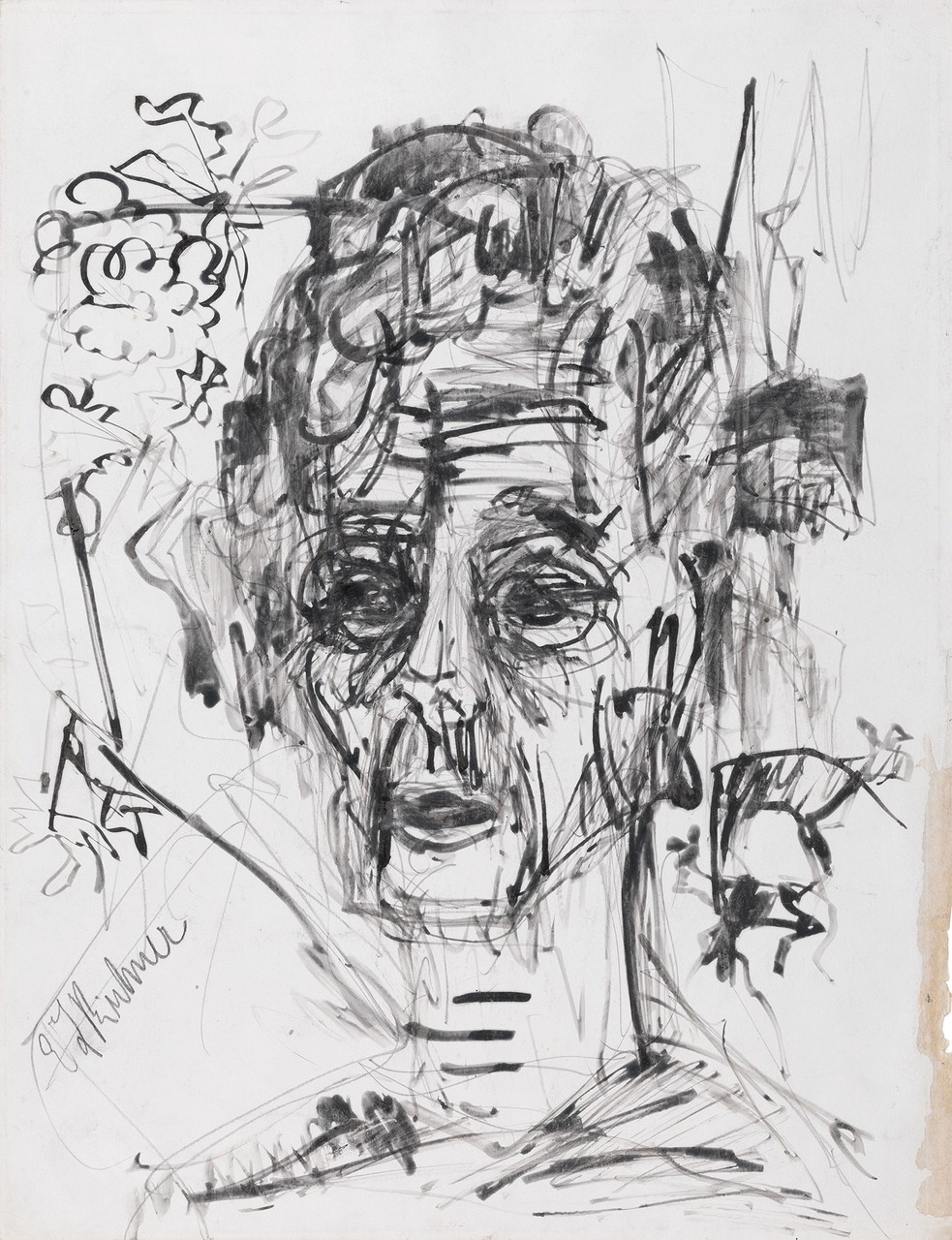
Self-Portrait in Morphine Rush, 1917
Reed pen and ink on gessoed paper
50 x 38 cm
Brücke-Museum, Berlin
Reed pen and ink on gessoed paper
50 x 38 cm
Brücke-Museum, Berlin
VIBRANT METROPOLIS / IDYLLIC NATURE
Kirchner – The Berlin Years
10 February - 21 May 2017
Ernst Ludwig Kirchner (1880 – 1938) is the master of Expressionism. Comprising some 160 works, ‘Vibrant Metropolis / Idyllic Nature. Kirchner – The Berlin Years’ examines the young artist’s groundbreaking creative phase in Berlin from 1911 to 1917. It focuses on the dichotomy between his twin lives in the bustling capital city and on the tranquil Baltic Sea island of Fehmarn, where he spent the summer months from 1912 to 1914. The contrasts between these two places of inspiration could hardly be greater; yet the works from that period bear witness to Kirchner’s quest for a life remote from bourgeois norms, and for a new, primal form of expression.
The outbreak of the First World War plunged Kirchner into a psychological and physical crisis in 1915 from which he only gradually emerged in 1917, when he settled in the mountains near Davos and embarked on a new phase of creativity. In addition to paintings, drawings, prints, sketchbooks and photographs from Kirchner’s time in Berlin, the exhibition also includes a representative selection of his early works from Dresden and some of the first paintings produced in Davos.
The exhibition – the first in Switzerland to examine this fascinating chapter in Kirchner’s artistic career – is a cooperation with the Brücke Museum Berlin.
Supported by Vontobel-Stiftung, Bundesamt für Kultur, Ars Rhenia – foundation for the trans-regional promotion of art and culture, A-Charity Foundation, Truus und Gerrit van Riemsdijk Stiftung, Dr. Georg und Josi Guggenheim-Stiftung and other donors who wish to remain anonymous.
Kirchner – The Berlin Years
10 February - 21 May 2017
Ernst Ludwig Kirchner (1880 – 1938) is the master of Expressionism. Comprising some 160 works, ‘Vibrant Metropolis / Idyllic Nature. Kirchner – The Berlin Years’ examines the young artist’s groundbreaking creative phase in Berlin from 1911 to 1917. It focuses on the dichotomy between his twin lives in the bustling capital city and on the tranquil Baltic Sea island of Fehmarn, where he spent the summer months from 1912 to 1914. The contrasts between these two places of inspiration could hardly be greater; yet the works from that period bear witness to Kirchner’s quest for a life remote from bourgeois norms, and for a new, primal form of expression.
The outbreak of the First World War plunged Kirchner into a psychological and physical crisis in 1915 from which he only gradually emerged in 1917, when he settled in the mountains near Davos and embarked on a new phase of creativity. In addition to paintings, drawings, prints, sketchbooks and photographs from Kirchner’s time in Berlin, the exhibition also includes a representative selection of his early works from Dresden and some of the first paintings produced in Davos.
The exhibition – the first in Switzerland to examine this fascinating chapter in Kirchner’s artistic career – is a cooperation with the Brücke Museum Berlin.
Supported by Vontobel-Stiftung, Bundesamt für Kultur, Ars Rhenia – foundation for the trans-regional promotion of art and culture, A-Charity Foundation, Truus und Gerrit van Riemsdijk Stiftung, Dr. Georg und Josi Guggenheim-Stiftung and other donors who wish to remain anonymous.


